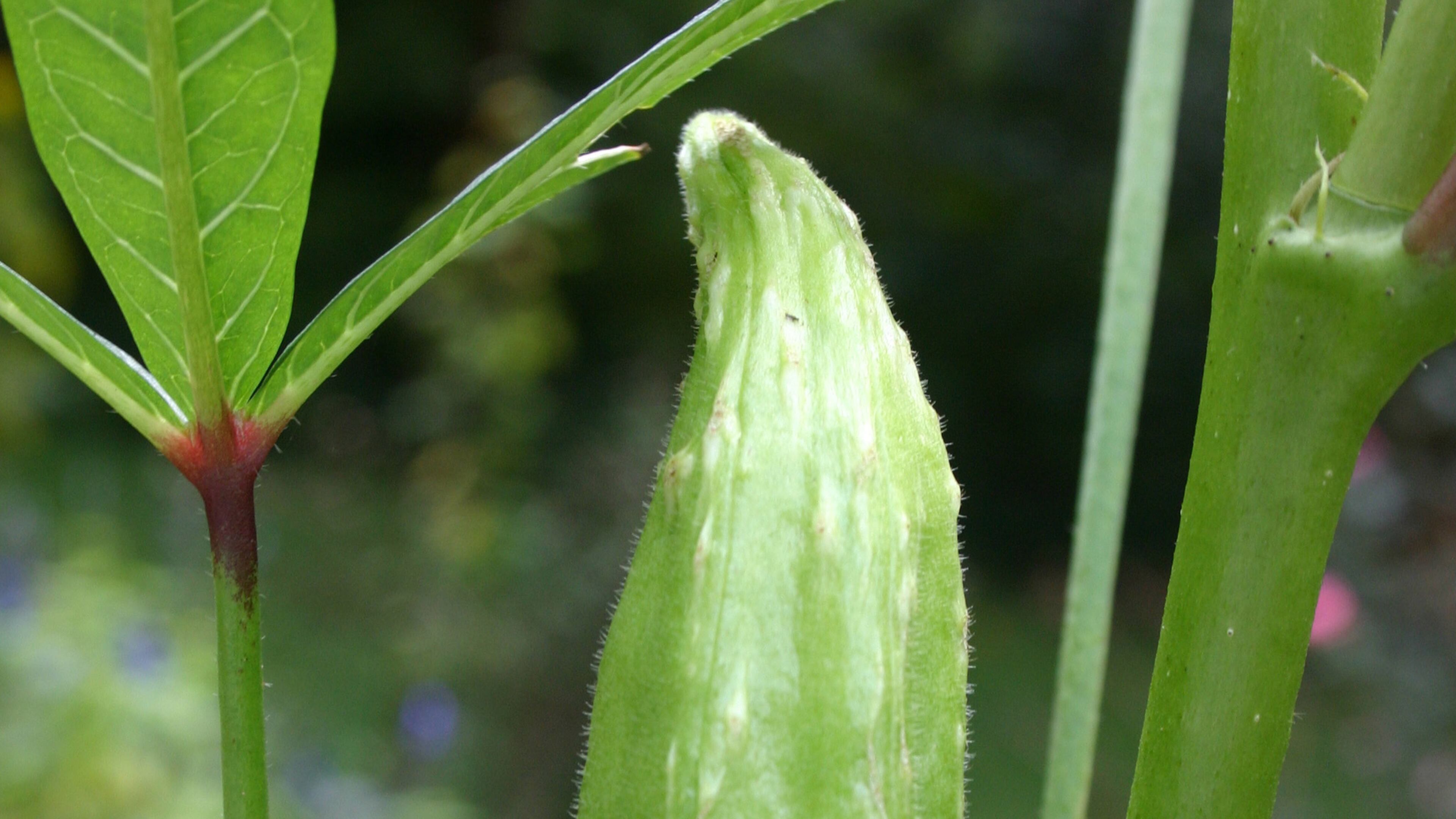Okra safe to eat despite stinkbug attack

Q: Our okra has done great, but within the past week it has gotten white bumps on the pods. Is it edible or not? — Diann Johnston, Winston
A: The bumps are "stings" from stinkbug feeding. Stinkbugs insert their hollow mouthpart into the okra skin and suck out juice. When they leave, the pod heals the wound with a characteristic white bump. Stinkbugs are tough to control when adults. Look for 1/4-inch long brown, shield-shaped insects on your okra in early August next year and control the young ones with garden insecticide. In my experience, the okra is completely safe to eat now.
Q: Squirrels are eating our deck boards and gnawing on the HardiPlank siding. What can we do to stop this? — Linda DeLeva, Gwinnett County
A: When I was 3, my mother applied a bitter liquid to my thumbs to remind me not to suck them. You can similarly repel the squirrels with sprayable hot pepper wax available at garden centers. For more deterrence, go to a store that sells bird feeding supplies and get some pepper oil to paint on the boards and siding. If you see squirrels scampering around your yard with trails of smoke coming from their backsides, you'll know they have encountered the pepper products.
Q: We planted lots of yellow lantana atop a retaining wall. The plants were full of blooms but now lots of leaves are turning a grayish brown and crispy. The leaves look peppered on the underside. — M. Delmore
A: You have an infestation of lantana lace bug. These small insects roost on the backsides of leaves and suck sap from them. Their excrement makes lots of black dots on the underside. Not much can be done at this point. There are too many to kill them all, and your leaves won't turn green again. Make note to watch for lace bugs next June and use sprayable garden insecticide to wipe out the first generation then.
Q: Two days after realizing my Bermuda lawn had army worms, it was brown. We killed the caterpillars, but the grass is still not green. Will the grass recover this year? — Carolyn McCravy, Douglasville
A: If the Bermuda grass was reasonably healthy, it will green up just fine next spring. Army worm caterpillars come from eggs laid by small moths. They are often brought in on new sod, but existing lawns can be infested if the moths are blown up from Florida on strong winds. They do not overwinter in North Georgia. Army worms only eat the grass leaves, not the stem or roots.
Listen to Walter Reeves from 6 to 10 Saturday mornings on WSB-AM (750). Go to www.gardeningingeorgia .com for details on his TV show or visit his Web site, www.walterreeves.com.


